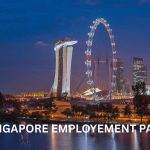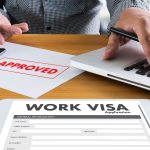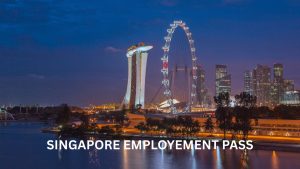Table of Contents
Introduction
A lot of mid-skilled professionals look at Singapore as a place to grow their careers. But if you want to move to Singapore for work, a work pass is a must.
The S Pass is the first thing you’ll come across when you start Googling work passes, and I know that it can feel a bit confusing at first.
Let me make it simpler for you. If a standard work permit feels too basic for your skills, and the fancy Employment Pass feels out of reach, the S Pass is the one for you.
It’s meant for people like technicians, associate professionals, and others who have good skills but do not qualify for the top-tier passes.
When I first helped a friend apply, we were so confused by salary numbers and quotas, and all. But once you break it down step by step, it’s actually not that hard.
What is the S Pass?
The S Pass is a work pass for mid-skilled foreign workers in Singapore. This pass is issued by the Ministry of Manpower (MOM).
- Targeted Workforce: The S Pass is for professionals who manage the day-to-day operations of a company. This will include roles like technicians, associate professionals, executives or managers. So it is for professionals who keep day-to-day operations running.
- Salary Benchmarks: There’s a minimum salary requirement for S Pass, and it can change depending on your age and the sector you are in.
- Quota System: According to the law, Companies can only hire a certain number of S Pass holders. So they follow a quota system.
- Levy Requirements: This is a fee or charge that employers have to pay if they hire any foreign worker.
- Medical Insurance: S Pass holders also get an added benefit of medical insurance covered by their employer.
I always suggest checking the official MOM S Pass page for the latest information regarding S Passes, because the requirements often keep changing.
Also Read: S Pass Criteria and Quota Guidelines for 2025
Eligibility Criteria
Let me tell you about the main requirements applicants need to fulfil to qualify for the S Pass:
1. Salary Requirements
- General Sector: A minimum monthly salary of S$3,300 is required for the general sector.
- Financial Services Sector: The minimum salary requirement here is S$3,800.
- Age Adjustments: As you age, the salary threshold also increases with it. For now, it is up to S$4,800 for those aged 45 and above.
2. Educational Qualifications
Including formal qualifications is not a must here, but having them can help you in your application. It may suggest that you’re prepared and serious about the role. You can include:
- Degrees or diplomas from recognised institutions
- Technical certificates from accredited schools
- Professional certifications directly relevant to your job
3. Relevant Work Experience
Also, don’t forget to add all your previous work experience details here.
Having a hands-on experience that aligns with your role is important and can help you a lot in your application for the S Pass.
A few well-documented projects in your field will also give you the advantage here.
4. Job Offer Requirement
You’ll need a confirmed job offer from a Singapore-registered company. Your employer or a licensed employment agent has to sponsor the application.
The S Pass application doesn’t even get started without an offer of employment. So make sure you have a job at hand before you apply for the S Pass.
Application Process
Applying for the S Pass involves the following steps:
Step 1: Pre-Application Assessment
As the first step, I would suggest using the MOM’s Self-Assessment Tool to determine if you are eligible for the S Pass or not. This tool indicates whether you meet the criteria for the S Pass.
Step 2: Job Advertisement Requirement
It is a rule that employers must advertise the position on MyCareersFuture and consider all candidates fairly before applying for the S Pass. This is done to ensure that the local talent is given priority consideration.
Step 3: Online Application Submission
The next step is to submit applications through MOM’s EP Online system. This can only be done by employers or appointed employment agents.
Step 4: Required Documents
These are the documents you should keep ready while preparing for the S Pass application:
- Scanned copy of your passport bio-data page.
- The company’s latest business profile from ACRA.
- Educational certificates (if you’re declaring qualifications).
- Written consent from the candidate.
Step 5: In-Principle Approval (IPA)
After your application is approved, MOM will issue an IPA letter. This letter will be your entry pass to work in Singapore.
Step 6: Pass Issuance
Once you finish your pre-employment medical check-up and verify insurance coverage, the S Pass is formally granted. The physical card takes five working days to arrive. You’re all set now, and you can begin to plan your relocation.
Quota and Levy System
Quota Restrictions
There is a quota restriction on the number of S Pass holders a company can employ. This quota also keeps changing, and the number varies according to different sectors.
- Service Sector: The law says that employers can grant an S Pass to only 10% of the total workforce.
- Manufacturing, Construction, Marine, and Process Sectors: For these sectors, the limit is increased to up to 15% of the total workforce.
Levy Rates
A levy is a fee or charge that employers in Singapore have to pay if they hire foreign workers. Your employer will handle this for you, so no need to worry about that.
Right now, the levy rate for S Pass holders is S$650 per month across all sectors and levy tiers.
Medical Insurance Requirements
Employers are required to provide medical insurance coverage for all S Pass holders:
- The minimum annual coverage is at least S$60,000 per S Pass holder.
- This coverage includes Inpatient hospital stays, day surgeries, and treatment for illnesses or accidents not related to work.
- Co-payment Structure: For claims above S$15,000, employers cover 25% of the amount, and insurers cover 75%.
Family Immigration Options
Dependant’s Pass
If you want to move with your family to Singapore, I have some good news for you. S Pass holders who earn a monthly salary of S$6,000 or more have the option to bring their immediate family to Singapore on a Dependant’s Pass. This includes:
- Legally married spouse.
- Children under the age of 21 who are unmarried
Long-Term Visit Pass (LTVP)
Also, if there are some other members of the family you want to bring to Singapore, there is a Long-Term Visit Pass. This pass will let you bring:
- Common-law spouse.
- Unmarried stepchildren under 21.
- Handicapped children over 21.
- Parents (only for those earning at least S$12,000 monthly).
Also Read: U.S Visa Application Requirements and Changes You Should Know in 2025
Conclusion
If you clearly understand the rules and stay organised with all the documents required, getting an S Pass will become so easy for you.
My advice would be not to rush with your application. Take a few minutes to understand the whole process. It’ll save you stress later.
Most of the hard part will be over once your documents are organised and uploaded in the right manner. Then, after you get approved, you can finally focus on adapting to your new position and actually enjoying the experience of living in Singapore.








